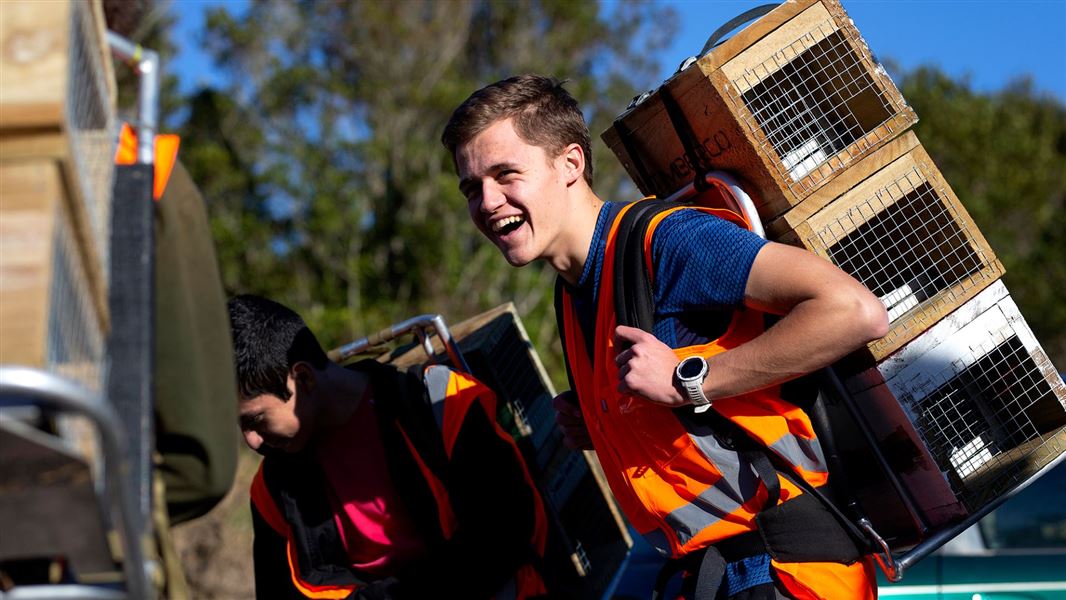Archived content: This media release was accurate on the date of publication.
Date: 14 October 2019 Source: Office of the Minister of Conservation
“Since the Predator Free 2050 goal was announced in 2016 there has been an increasing groundswell of New Zealanders stepping up to help protect our special native wildlife and plants by trapping rats, stoats and possums. With this has come a growing demand for technical advice and training on effective trapping.
“The new trapping guide is designed to work alongside DOC’s Predator Free 2050 online toolkit and the successful NMIT training programme but offers a level of detail that has not been previously available to community trappers.
“This is the ultimate ‘how to’ guide, using DOC-proven techniques, for setting up community trapping programmes, no matter big or small.
“It’s a compact handbook that can be taken into the field and contains detailed information on how to trap introduced predators in a way that is safe, effective and humane.
“The guide covers everything from how to identify target pests, animal behaviour, the threat they pose to native species, how to choose the right traps, baits and lures, how to set out trap lines, and how to monitor the results of trapping efforts.
“This demonstrates one way DOC is providing practical support to help people and community groups gain the skills to contribute towards the Predator Free goal” said Eugenie Sage.
The NZQA-accredited training programme, developed by DOC and NMIT, has been in-demand with more than 100 participants trained over the past year and remaining courses for 2019 booked out. Introductory trapping workshops around the country run by DOC predator free rangers and other groups, have also been popular.
“The up-surge in the trapping movement has been phenomenal with thousands of groups now active. For example, just a few years ago Wellington’s Crofton Downs was New Zealand’s first predator free community. Now there are 43 active community groups working towards a Predator Free Wellington. By Christmas they are hoping Miramar Peninsula will be completely free of rats, possums and stoats, which would be a real boost for the wildlife there.
“New Zealanders care a lot about our unique native wildlife, whether it’s the korimako/bellbird or tuī in their backyard or kiwi, kākā or whio/blue duck in a nearby bush reserve. Everyone can help protect native species by controlling predators and every trap counts towards a predator-free Aotearoa.”
Contact
For media enquiries contact:
Email: media@doc.govt.nz
